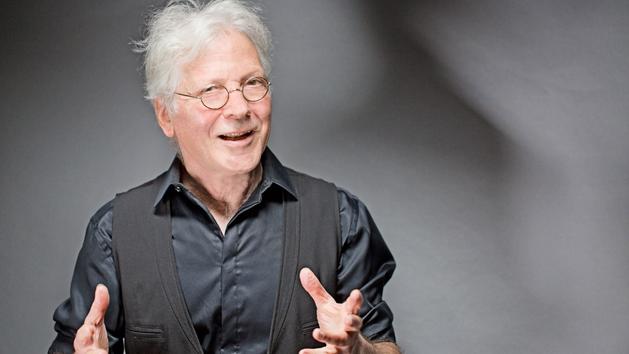Speaking well is not innate. As we learn to write, we should learn to express ourselves. However, how many of us have one day refused to speak for fear of stammering, of stammering or simply of not having the right tone?
Often, "the good talkers who do not have much to say, speak and say it well, while those who could express interesting ideas, keep silent", explains Jean Sommer. In his book The Voice, this tool of power(Lattès), the author shows us that our voice speaks for us. What does she say about us? Can we improve it and in what way?
LE FIGARO. - What is a good voice?
Jean SOMMER. - It's a calm voice that gives a feeling of fullness and coherence when you listen to the person. A voice that makes you want to follow her. However, there is no ideal voice. Just as we can prefer one face to another, one music to another, we can love one voice more than another. It's a matter of sensitivity. To which are added elements of context and culture. Depending on whether you grew up in France, the United States, Africa or Asia, the notion of a good voice may vary. Local criteria must be taken into account. The time also influences tastes. A century ago, women preferred men with voices, because they were synonymous with virile power in the imagination. While today we are in the proximity, for more presence or nuance.
"READ ALSO - Stéphane de Freitas:" Eloquence is not a science but an art "
Can our voice tell who we are and where we come from?
Yes. The voice says it all. It is like a slice of the earth's crust that allows you to read the history of a land in depth. Likewise there is a thickness of the voice. One can hear there under the melody of the word, an origin, an accent perhaps, or hesitations, a tension or a lack of support. A restraint that speaks of fear or modesty. Until perceiving the character of the person, someone who is determined or who doubts. This is what makes the first impression very often.
The voice can unfairly create discrimination, by accent, by tone, by placementIt is therefore both a mental card and an identity card of the person.
That's it. The voice is our invisible body. Just as you can define a person at first glance, you can also analyze them by listening to them speak. The voice can unfairly create discrimination, by accent, by tone, by placement. For example, some misplaced, nasal or forced voices produce aggression or on the contrary are attractive because they are reassuring. Our voice translates us and betrays us.
In your book, you provide tools and advice on how to express yourself better orally. Is it possible to change his voice?
Our voice is the sum of everything we are: our past, our influences, our culture, our fears… Within this voice, there are things that cannot move. This is the case with the stamp, which is a bit like the face. But a person who changes their hairstyle can be transfigured. It is the same for the voice. We can make it evolve, make it find information that it has lost. Many people have a voice that is incomplete or distorted by education. If you never make another voice, you can always correct or improve it.
Since the creation of social networks, people want to be seen and heard. Each has become the medium of himselfWhat do you think is the fear of speaking out?
In France, learning the language is done in writing, in silence and under the sign of fault. The practice of speaking is not perceived as noble, while it is the opposite among our Anglo-Saxon neighbors. On the other hand, French is a language of form, which is constantly self-judging. A Frenchman will prefer to be silent rather than speak badly, because he is in a quest for perfection. Conversely, an American will dare to express himself, even crudely, as long as the message gets through. Finally, speaking is another way of drawing attention to yourself. When this is the case, we embody a legitimacy, it is therefore a question of being up to the task.
Twenty years ago, the question of speaking out did not arise since people did not have to. But society has changed. Today, everyone must speak at the risk of blending into the wallpaper. Since the creation of social networks and more and more, people want to be seen and heard. Networks are accelerating the movement of public speaking. Each has become the medium of itself. There is an underlying competition which forces representation and sometimes those who have the legitimacy do not dare to express themselves. Too bad.
"READ ALSO - Bertrand Périer:" To be a good speaker, you have to read but also listen to others
Does this mean that if we speak more and more we speak less and less well?
There are two postures in my opinion. The first tends to impoverish the language while the other enhances it. The first posture is the “familiar” voice. She does not need to put the forms, with "uh ... uh ..." It is that of current use which tends to be impoverished. The second is the “sustained” professional posture. A word that tends to make everyone in this world a defender of their cause or a salesperson or a communicator. There is also a movement towards eloquence which interests more and more people who take a liking to this representation of the word. The important thing is to be aware of it to make the part between one and the other in his life.
How to be heard?
The voice is a physical action. When I speak, I emit vibrations. For the voice to be perceived in its fullness, posture plays an important role. Likewise for the joint. When I was a child, people spoke loudly to each other from afar, from the 6th floor to the street. We had to make our voices ring. Today, insofar as we no longer need to structure speech, the system falls asleep. So it's not that we speak less well, but we are more lazy. The acceleration of social networks and passive communication lulls our oral expression. The exchanges become basic and necessary.
You speak of the voice as a "tool of power". Which policies do you think speak best?
Barack Obama was, in my opinion, an example. Combining the elegance of man, the simplicity of the heart and the intensity of the speaker. In France, for the aspect galvanizing tribune of the crowds I would quote Jean-Luc Mélenchon. For the qualities of the pure voice, I would name Nicolas Sarkozy, who in my opinion has a very rich timbre and vocal register. It combines midrange, bass and treble. He is as good in proximity as in meetings.









/cloudfront-eu-central-1.images.arcpublishing.com/prisa/6ENC2Q6CD5AYNEZWKGRS3K6WSA.jpg)





